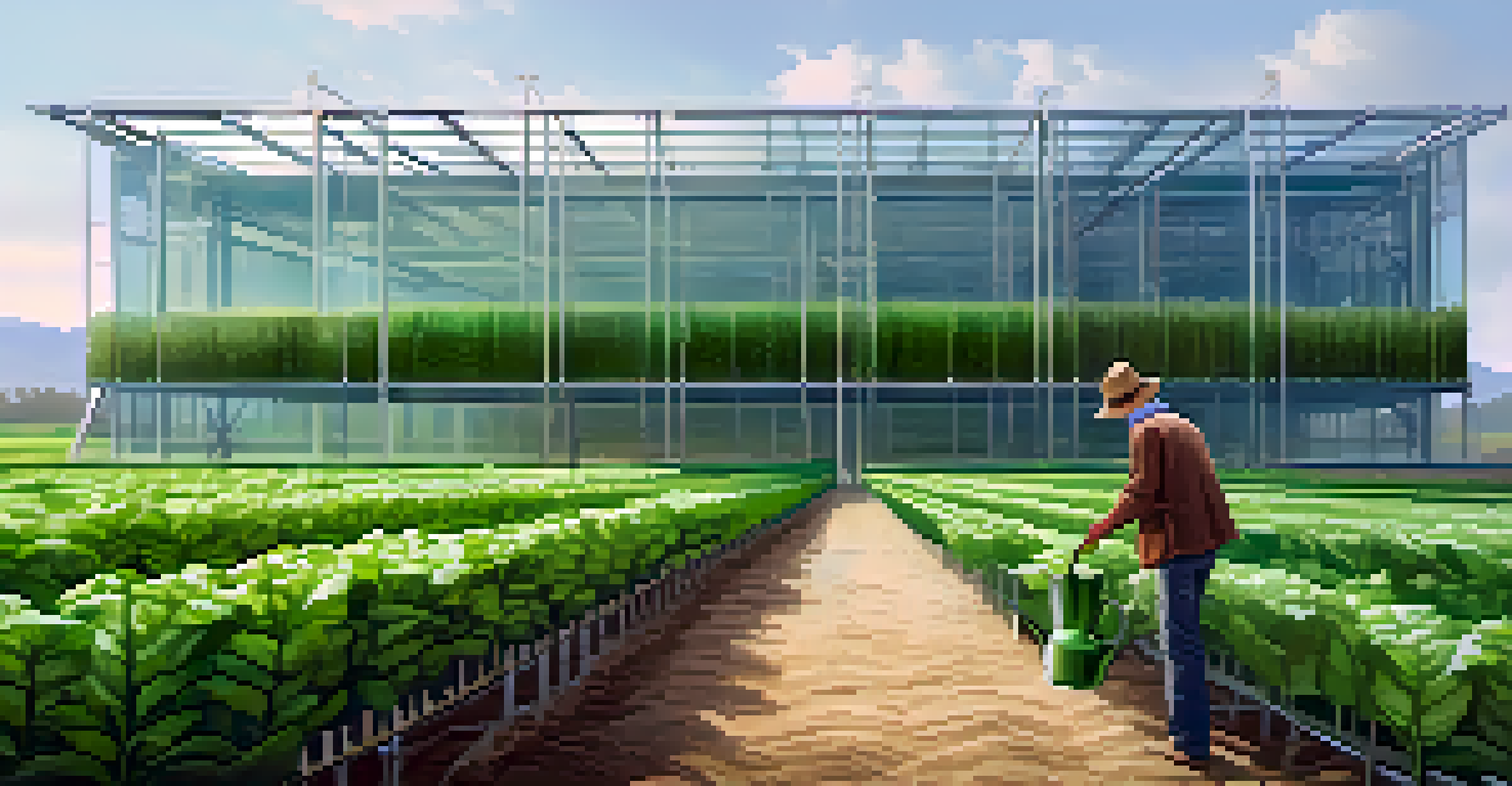The Impact of Vegetarianism on Global Food Security Challenges

Understanding Food Security and Its Challenges
Food security means having consistent access to enough nutritious food. It's not just about quantity but also quality, ensuring that people can eat healthily and sustainably. Today, over 800 million people face hunger, and this number is growing due to climate change, conflicts, and economic instability.
The future of food is not about meat; it’s about plant-based diets that nourish the planet and its people.
These challenges are interconnected, creating a complex web that worsens food insecurity. For instance, climate change disrupts agricultural productivity, while conflicts can displace communities, making it difficult to access food. Understanding these challenges is crucial for finding effective solutions.
By addressing food security, we can improve health outcomes, boost economies, and promote social stability. Exploring innovative approaches, like vegetarianism, might offer new ways to combat these pressing issues on a global scale.
The Rise of Vegetarianism Around the Globe
Vegetarianism has seen a significant rise in popularity in recent years. Many people are choosing plant-based diets for health reasons, ethical considerations, or environmental concerns. This shift reflects a growing awareness of the impact of food choices on our planet.

Statistics show that in the past decade, vegetarianism has increased by over 25% in various regions, particularly in urban areas. This trend is often accompanied by a booming market for plant-based products, making vegetarian options more accessible than ever. As more people embrace this lifestyle, the potential for its impact on food security becomes clearer.
Food Security Affects Global Health
Over 800 million people face hunger, with interconnected challenges like climate change and conflicts exacerbating food insecurity.
The increase in vegetarianism can also change agricultural practices. As demand for plant-based foods rises, farmers may shift their focus from raising livestock to growing more crops, which could lead to more efficient land use and resource allocation.
How Vegetarianism Affects Resource Allocation
Producing plant-based foods typically requires fewer resources than raising animals for meat. For example, it takes about 1,800 gallons of water to produce just one pound of beef, while a pound of vegetables requires significantly less. This difference highlights how shifting diets can help conserve vital resources.
Eating less meat is one of the most effective ways to reduce your impact on the planet.
Additionally, land used for livestock farming could be repurposed for crop production. This change could lead to increased yields of staple foods, directly addressing some food security issues. By prioritizing plant-based agriculture, we could feed more people with the same amount of land.
Moreover, reducing meat consumption can lead to lower greenhouse gas emissions, which is crucial for combating climate change. By aligning our diets with sustainable practices, we can create a more resilient food system that benefits everyone.
The Nutritional Benefits of a Vegetarian Diet
A well-planned vegetarian diet can provide all the essential nutrients our bodies need. Foods like legumes, nuts, seeds, whole grains, and a variety of fruits and vegetables offer a rich source of vitamins, minerals, and proteins. This accessibility to nutritious foods can improve public health, particularly in regions plagued by malnutrition.
Moreover, reducing meat consumption can lead to lower instances of chronic diseases such as heart disease, diabetes, and some cancers. As more people adopt vegetarian diets, we could see a positive impact on healthcare systems, reducing the burden of diet-related illnesses.
Vegetarianism Can Boost Sustainability
Shifting towards plant-based diets can lead to more efficient resource use, benefiting both food security and environmental health.
Additionally, educating communities about plant-based nutrition can empower individuals to make healthier choices. This knowledge can contribute to both personal well-being and broader public health initiatives aimed at improving food security.
Economic Impacts of Shifting to Vegetarianism
Transitioning to a vegetarian diet can have significant economic implications. For instance, it may lead to decreased costs in healthcare due to improved public health outcomes. Lower healthcare expenses can free up resources for other crucial areas, such as education and infrastructure.
On a larger scale, promoting plant-based agriculture can create new job opportunities in farming, food production, and distribution. As demand for vegetarian products grows, so does the need for skilled workers in these sectors, potentially boosting local economies.
Moreover, investing in sustainable food systems that prioritize vegetarian options can enhance food security for vulnerable populations. This approach helps ensure that everyone has access to affordable, nutritious food, ultimately fostering economic stability.
Cultural Considerations in Adopting Vegetarianism
Cultural beliefs and traditions play a vital role in food choices, including the adoption of vegetarianism. In many cultures, meat is a central component of meals, making dietary changes challenging. However, growing awareness of health and environmental issues is prompting shifts in these traditional practices.
Some communities have a long history of plant-based diets, which can serve as models for others. By highlighting these examples, we can show that vegetarianism can coexist with cultural identity, rather than replace it. This approach encourages respect for diverse dietary practices while promoting healthier choices.
Economic Benefits of Plant-Based Diets
Transitioning to vegetarianism can lower healthcare costs and create job opportunities in sustainable agriculture, enhancing local economies.
Engaging with communities through education and outreach can help bridge the gap between tradition and modern dietary needs. By fostering open dialogue, we can inspire a more inclusive conversation about food security and nutrition.
The Future of Vegetarianism and Food Security
As we look to the future, the role of vegetarianism in addressing food security is becoming increasingly clear. With a growing global population, we must explore sustainable solutions that can feed everyone without depleting our planet's resources. Embracing plant-based diets can play a crucial part in this endeavor.
Innovations in agriculture, such as vertical farming and plant-based meat alternatives, are on the rise. These advancements can enhance food production efficiency and reduce environmental impact, making vegetarian options even more appealing and accessible. The future might hold more exciting developments in this space.

Ultimately, the shift towards vegetarianism is not just a personal choice; it's a collective movement toward a more sustainable food system. By prioritizing plant-based diets, we can work together to tackle food security challenges and create a healthier planet for future generations.